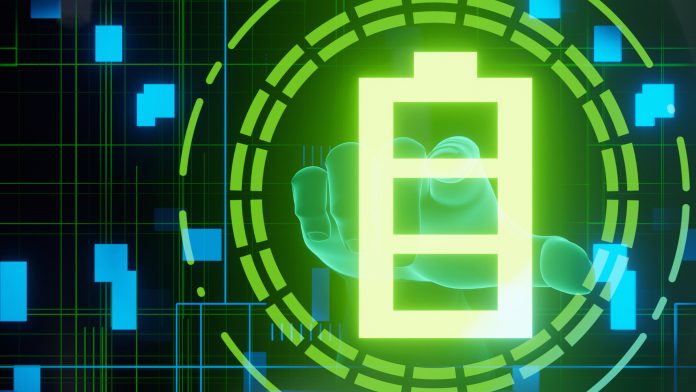Dr Tim Nordh, CTO of Altris AB, explains how the company is driving a greener future with its offering of sustainable cathode and electrolyte materials for rechargeable sodium batteries.
Founded in 2017, Swedish innovator Altris produces highly sustainable cathode materials for rechargeable sodium batteries in a bid to support a renewable future. The company carries out research focused on the development of electrodes that are comprised entirely of highly abundant and safe materials.
Its product, known as Fennac, is an iron- and sodium-based electrode material suitable for sodium-ion batteries applied for stationary energy storage. Large-scale production and processing of its product on a battery pilot line is currently underway.
In conversation with The Innovation Platform, Altris CTO Dr Tim Nordh explains more about the company’s product offering, sustainable values and practices, and future plans.
Can you tell us more about Altris as a company and your key product offering?
Altris is a technological and materials company, which currently produces a cathode material and an electrolyte material. We also help to develop and build battery cells for our customers. Our products are built around sodium-ion technology, using only sustainable materials. Our goal is to supply the technological support and materials needed to build cells.
How does your technology work and what are the key benefits?
The type of batteries we work with are similar to lithium-ion (Li-ion), we switch the Li-ion to Na ion, and the cobalt, nickel and manganese to iron. The key benefits of sodium-ion batteries include an improvement of the overall sustainability of the battery, a reduction of fluorine chemistry, a reduced cost to produce, a reduced environmental impact, an increased safety of the battery, improved recyclability, and an ability to produce batteries from materials that are available in abundance. These features make the batteries environmentally friendly, very safe, and mean that they can be produced at a reduced cost compared to lithium-ion batteries. In the battery value chain, there are many elements that impact cost, and we see that we are adding value all along the value chain.
How do you ensure the safety of the materials you produce?
Safety of the materials we produce is an intrinsic value for our sodium-ion chemistry. A lot of battery fires and explosions with lithium-ion batteries are due to a chemistry where you have an exothermic break-down process that can give a thermal runaway, which means you have oxygen and then a fuel for the fire already inside the battery. With our chemistry, we do not have an exothermic breakdown nor any oxygen; removing both self-propagation, heat, and fuel from the battery, so we cannot have the big explosion or battery fires that lithium batteries have. This is how we ensure the safety of the materials that we produce. We choose cell designs to reflect this approach and have also developed and patented our electrolytes to be extra safe. Furthermore, with sodium-ion chemistry you can also discharge the battery completely during transport.
How important are sustainable practices within your organisation and how can your product support a greener future?
Sustainability sits at the core of Altris’ work. It is the main reason we exist. We started off as a spin-off from green research at Uppsala University on the energy transition that is supported by battery energy storage. By building large battery storage, we enable renewable energy sources and support the transition from fossil-based energy – but we also need to make sure that the batteries are environmentally friendly themselves.
The whole company started because the founders thought that this was the greenest alternative they had ever seen. This idea to make an impact on a large scale has then permeated throughout the entire company to sit at the very core of our business.
We want to make everything as environmentally friendly as we can. This means that, in all our designs, in all future roadmaps we look at how we can make things greener and better. We try to work downstream to see how a product will affect end users and recycling before incorporating elements that just increase performance. We are reluctant to add anything that increases performance if it decreases sustainability. We want to keep that trade-off to a minimum. This approach means that we continuously work to improve sustainability as a company in everything that we do, from our chemistry to our working environment – we want to make a difference in all that we do. Altris seeks to find as many applications as possible for sodium-ion batteries as we see that, for every sodium-ion battery that is sold, it replaces a dirtier chemistry battery that could have been sold.
How can Fennac help meet the challenges of the raw material supply chain?
Fennac is pretty interesting when it comes to raw materials supply. We do not use lithium, graphite, or any transition metals – which means that we are not subject to any of the traditional supply bottlenecks of lithium-ion manufacturing. We have chosen that our cathode material only consists of four elements that are not only available in abundance, but are also available all over the planet. This means that mass production can be supplied from almost anywhere, making scaling easier and avoiding any geo-political barriers that might impact supply.
How are you going to scale up production of Fennac?
Scale-up takes place in line with customer demand. We are pushing ahead as far as we can with investors and collaborators to design concepts for scale-up. We are also in the process of completing the last technological verifications of a large-scale production facility in Sandviken. After that, it is all about customer commitment.
Please note, this article will also appear in the eleventh edition of our quarterly publication.







